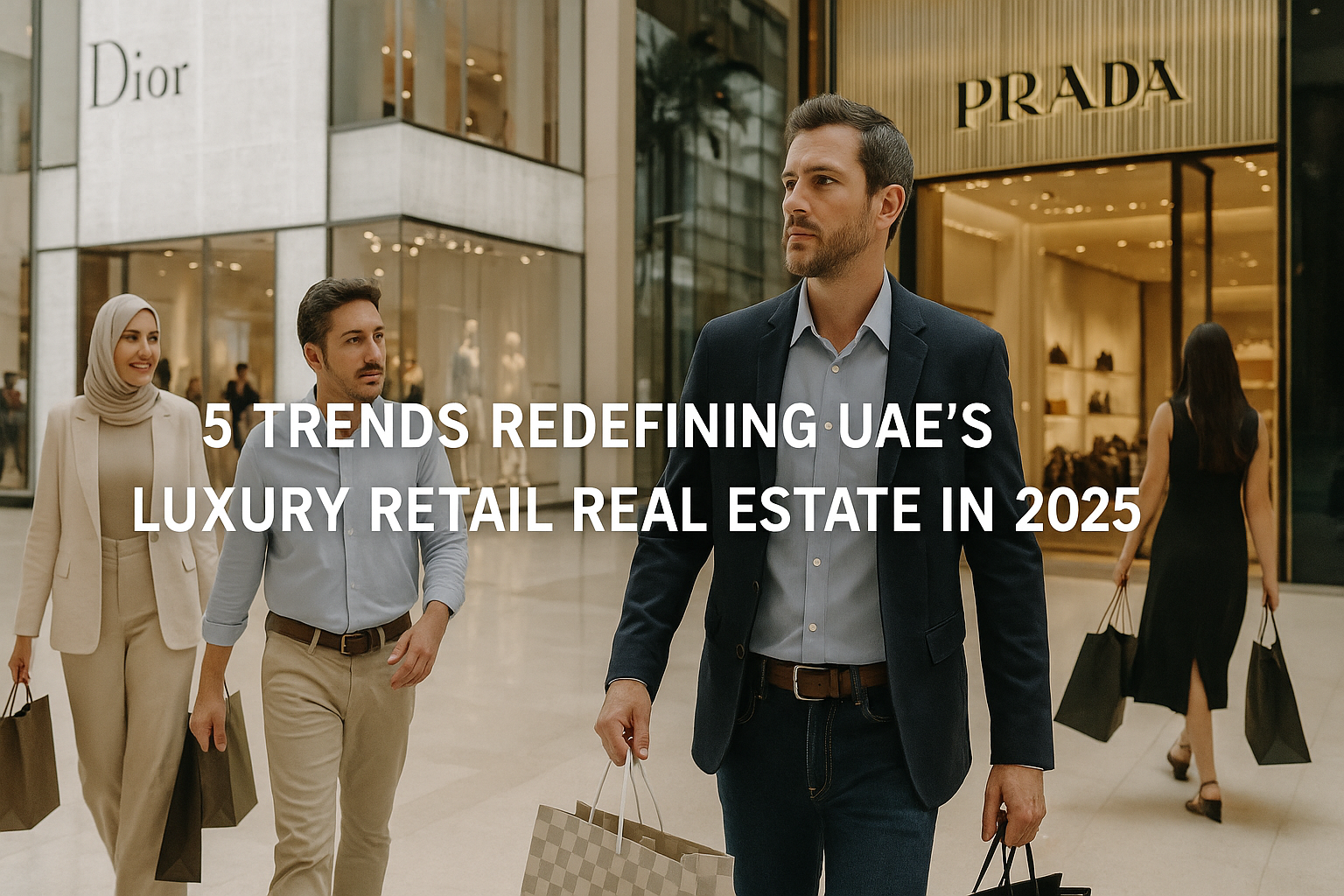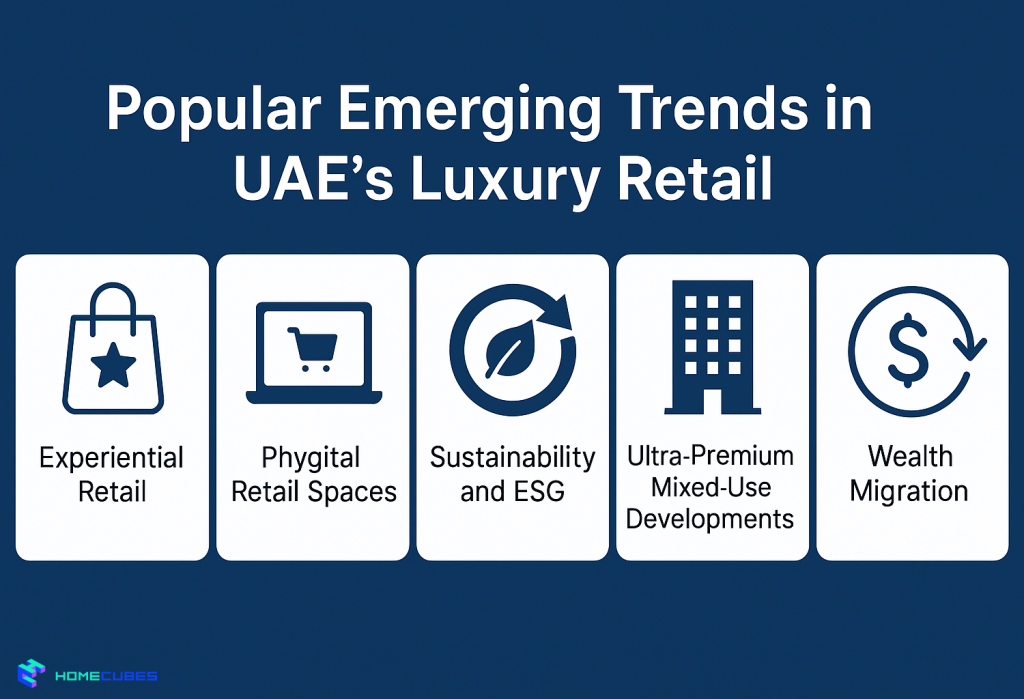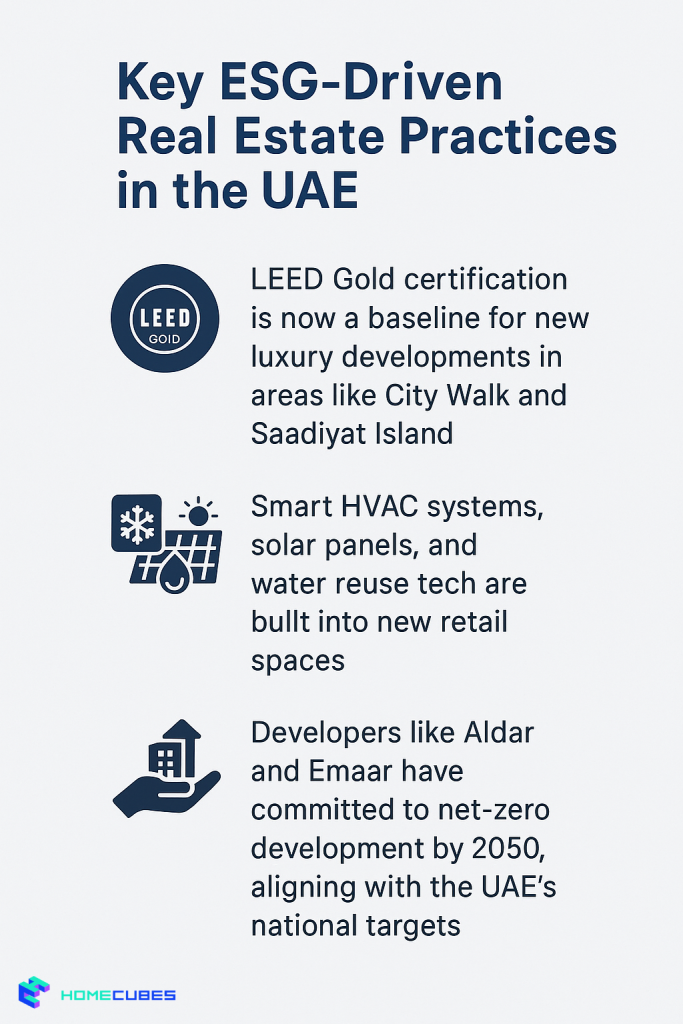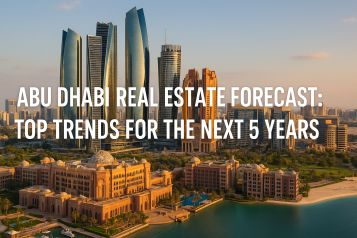

Introduction: Luxury Retail’s Strategic Shift in the UAE
The United Arab Emirates has long stood at the forefront of luxury. From the glittering storefronts of Dubai Mall to Abu Dhabi’s designer-lined promenades, retail in the UAE is both aspirational and innovative. But in 2025, a new transformation is taking hold — one shaped not by opulence alone, but by experience, technology, sustainability, and global wealth migration.
This is the largest shopping mall in the world part of a $20 Billion project
1.1 Million Square meter, over 1200 retail stores with including an aquarium
136 million people spent $1.27 billion in this place in 2019
The Dubai Mall… pic.twitter.com/ZsY6RogZSj
— Dúkìyá (@dukiya_ng) March 28, 2025
The Luxury Retail Trends emerging in 2025 are redefining how developers design real estate, how brands interact with consumers, and how high-net-worth individuals (HNWIs) influence the retail landscape. This article explores the five most critical trends shaping luxury retail real estate across the Emirates — and what they mean for developers, investors, and luxury brands alike.

1. Experiential Retail Becomes the Norm, Not the Niche
Today’s luxury shoppers are no longer content with merely owning high-end products. They want experiences. In 2025, retail spaces are evolving from static showrooms to interactive environments that provide sensory immersion, social interaction, and brand storytelling.
Examples of Experiential Luxury in the UAE
- Level Shoes in Dubai Mall offers custom design sessions, curated art exhibits, and exclusive fashion talks — creating a loyal community.
- Chanel’s Boutique at Mall of the Emirates was redesigned to host product launches with in-store hospitality.
- Bloomingdale’s Dubai includes private suites for VIP shopping, using stylists and AI to craft individual experiences.
Real Estate Implications
- Developers are allocating larger floorplates for experiential zones, lounges, and customization stations.
- Lease agreements now include experience activation clauses to attract top-tier global tenants.
- Flexible design is crucial — allowing pop-ups, installations, and social events.
These immersive concepts elevate foot traffic and boost sales per square foot. For investors, this translates into more resilient tenant performance, particularly in ultra-prime retail districts.
2. Phygital Retail Spaces Are the New Standard
The fusion of physical and digital — coined “phygital” — has matured from a marketing buzzword into an industry-defining necessity. Consumers expect seamless transitions between online exploration and in-store engagement.
Phygital Retail in Action
- 6thStreet.com’s flagship phygital store in Dubai Hills Mall enables shoppers to browse online collections in-store using smart kiosks and AR mirrors.
- Burberry’s new concept store in The Dubai Mall integrates RFID-tagged products with video content and real-time social media walls.
- Cartier and Dior have begun issuing digital certificates (using blockchain) for their high-value items sold in Dubai, ensuring authenticity and traceability.
Developer Takeaway
To accommodate this shift, luxury retail spaces now require:
- High-bandwidth fiber infrastructure
- Flexible display zones with tech integration points
- Modular back-of-house logistics for fulfillment
Real estate that supports omnichannel, tech-driven retail experiences will command higher lease rates from digitally mature tenants.
3. Sustainability and ESG Are Driving Leasing Decisions
Environmental, Social, and Governance (ESG) standards are shaping the next generation of UAE luxury retail spaces, as there are several reasons that UAE real estate appeals to ESG-focused investors. Institutional investors and international brands alike are demanding green-certified, future-proof buildings.
Key ESG-Driven Real Estate Practices in the UAE

- LEED Gold certification is now a baseline for new luxury developments in areas like City Walk and Saadiyat Island.
- Smart HVAC systems, solar panels, and water reuse tech are built into new retail spaces.
- Developers like Aldar and Emaar have committed to net-zero development by 2050, aligning with the UAE’s national targets.
Impact on Investors and Tenants
- Real estate portfolios that meet ESG benchmarks have greater long-term value and lower insurance costs.
- Brands with sustainable product lines actively prefer ESG-compliant spaces, helping reduce tenant churn.
Sustainability is no longer a “nice-to-have” — it’s becoming essential to tenant acquisition and investor confidence in 2025.
4. Ultra-Premium Mixed-Use Developments Redefine Retail Placement
Rather than anchoring luxury retail in mega-malls, developers are increasingly embedding boutiques within ultra-premium, mixed-use ecosystems that blend hospitality, residential, wellness, and entertainment.
Key Developments Leading the Trend
- Dubai Creek Harbour by Emaar features retail pavilions on marina boardwalks, surrounded by branded residences and gourmet dining.
- Saadiyat Grove by Aldar in Abu Dhabi includes a luxury retail promenade adjacent to the Louvre Abu Dhabi and five-star hotels.
- One Za’abeel in Dubai integrates luxury retail into a vertical “urban resort” concept combining hotel, residences, and office towers.
Benefits to Real Estate Investors
- Diversified income streams from retail, hospitality, and F&B
- Resilience during economic downturns (residents support base footfall)
- Higher long-term asset value appreciation
As land prices rise, mixed-use development also provides better land-use efficiency, making it a win-win for developers and investors.
5. Wealth Migration Is Redrawing Luxury Retail Maps
The UAE’s proactive visa and tax policies have turned it into a magnet for the world’s elite. In 2025, the influx of HNWIs and ultra-HNWIs (UHNWIs) is transforming not just property investment, but where and how luxury retail is delivered.
Key Figures:
- Dubai is home to over 72,500 millionaires, 212 centi-millionaires, and 15 billionaires, making it one of the top 20 wealthiest cities globally (Henley & Partners, 2024).
- The UAE expects a net inflow of 4,500+ millionaires in 2025 alone.
Real Estate Shifts Caused by HNWIs
- Secondary hubs like Sharjah and Ras Al Khaimah are seeing increased luxury developments in response to spillover demand.
- Developers are embedding luxury boutiques inside gated villa communities such as Al Barari, Tilal Al Ghaf, and Saadiyat Lagoons.
- Pop-up showrooms, concierge-driven private retail, and invite-only events are taking place in exclusive clubs and branded residences.
This trend also broadens the investment horizon for developers, who are now targeting high-income suburbs instead of central business districts alone.
Bonus Trend: Luxury Brands Embrace Tokenization and Web3
While still early-stage, a select group of luxury brands and real estate developers in the UAE are exploring blockchain-based tokenization to fractionalize ownership of retail spaces or enable digital twin shopping.
- Decentraland activations by fashion houses are becoming test beds for UAE-based metaverse retail experiences.
- NFT-based loyalty programs are emerging among niche luxury brands operating in Dubai Design District.
These developments open future avenues for tokenized luxury retail investment — and firms like Homecubes are positioning for that eventual shift. These platforms offer different ways to profit from microinvestment in the UAE real estate market.
Key Takeaways for Developers & Investors
| Trend | Real Estate Implication | Strategic Benefit |
| Experiential Retail | Larger, flexible floor plans | Higher foot traffic, customer retention |
| Phygital Integration | Digital infrastructure & modularity required | Appeals to omnichannel-first global brands |
| ESG-Driven Design | LEED/Estidama integration is a tenant filter | Access to ESG-aligned capital |
| Mixed-Use Development | Luxury retail embedded in lifestyle zones | Higher lease yield & brand partnerships |
| Wealth Migration | Boutique retail in residential zones grows | First-mover advantage in rising areas |
| Tokenization & Web3 Retail | Blockchain & NFT readiness will be required | Future-proofing for real estate investment models |
Conclusion: The Future Is Experiential, Digital, and Diversified
UAE’s luxury retail real estate in 2025 is not merely an evolution — it’s a reinvention. From immersive store designs and smart retail tech to ESG mandates and new global wealth inflows, these Luxury Retail Trends are redrawing the rules of the game.
For developers and investors, aligning with these trends means tapping into the growing demand for elevated, ethical, and digital-first retail experiences. The opportunities are vast — but so are the expectations.
Homecubes: Preparing for Tokenized Luxury Retail Investment (Coming Soon)
At Homecubes, we believe the future of real estate investment is inclusive, secure, and blockchain-powered. That includes access to premium segments like UAE’s luxury retail — once reserved for institutional players.
While we are not offering services yet, we are actively preparing our platform and await licensing approval from the Virtual Assets Regulatory Authority (VARA). Our mission is to enable fractional investment in real estate assets, including luxury retail, through digital tokens.
🔔 Want to be first in line when we launch?
Contact us today and join our early interest list.










